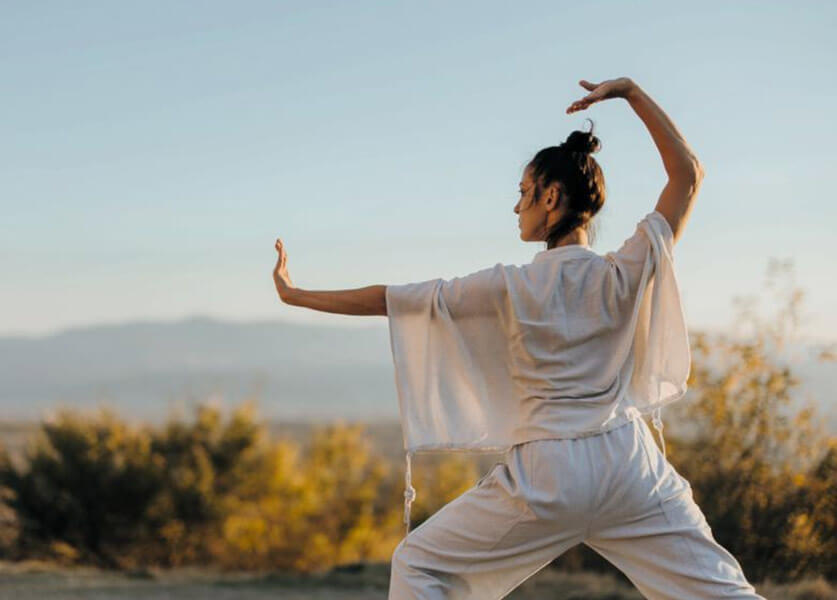LIFESTYLE
Qi Gong, Breath and Movement Discipline to Combat Mental Ruminations
Caroline Revol-Maurel / Madame Figaro
20-November-2023

This Chinese cousin of yoga invites one to slow down. It is suitable for people of all ages.
Opinions vary on its origins: some say Qi Gong is 3,000 years old, while others believe it dates back 5,000 years. One thing is certain: this energy art is one of the five branches of traditional Chinese medicine and is an integral part of its holistic approach, aiming to improve physical and mental health. Sometimes seen in parks, a group of people with salt-and-pepper hair, dressed in traditional attire, perform very slow movements in silence. Is Qi Gong elusive?
An Energetic Art
Qi Gong, which can be translated as 'the discipline of breath,' is closely related to yoga and is sometimes referred to as Taoist yoga. 'It is a body technique that uses breath and movement to work both the body and the mind,' defines Akli Hammadi, a Qi Gong teacher and vice-president of the Federation of Energetic and Martial Arts. Qi Gong aims for harmony between the body and the mind. In Chinese tradition, it helps circulate vital energy (qi). Through movement and breathing, it works the muscles, joints, and also the meridians, those famous channels of the human body mapped out by Chinese medicine and used in acupuncture.
Balance and Coordination
Similar to yoga, the movements in Qi Gong are standardized: each sequence mobilizes a part of the body, and all aim to improve balance and coordination. Breathwork helps to slow down breathing and heart rate. A session lasts between 1 hour and 1.5 hours and is ideally practiced outdoors, to take advantage of natural light and tune in to nature.
Meditation in Motion
Qi Gong is also used as a meditation and self-control technique, often accompanying martial arts. 'Shaolin monks practice it to improve their concentration and calm their minds,' explains Akli Hammadi. “In China, artists also use it; they find in Qi Gong a tool for letting go that enhances their creativity.”
Praise for Slowness
The uniqueness of Qi Gong lies in its slowness: rather than chasing performance, the discipline encourages slowing down. 'Slowness goes against the current,' concedes Akli Hammadi, 'but we see young people coming to Qi Gong because they are looking for a physical activity that allows them to disconnect and stop their minds from constantly spinning!' Slowing down, unplugging, listening to what's happening inside – and outside – oneself: Qi Gong helps to ground oneself in the present.
Benefits for All
Still relatively unknown in France and suffering from the austere image of a complicated and slow art suited only for the elderly, Qi Gong actually offers multiple benefits. By engaging the entire body in slow and controlled movements, it helps to combat stress, improves flexibility, and promotes balance and coordination.








